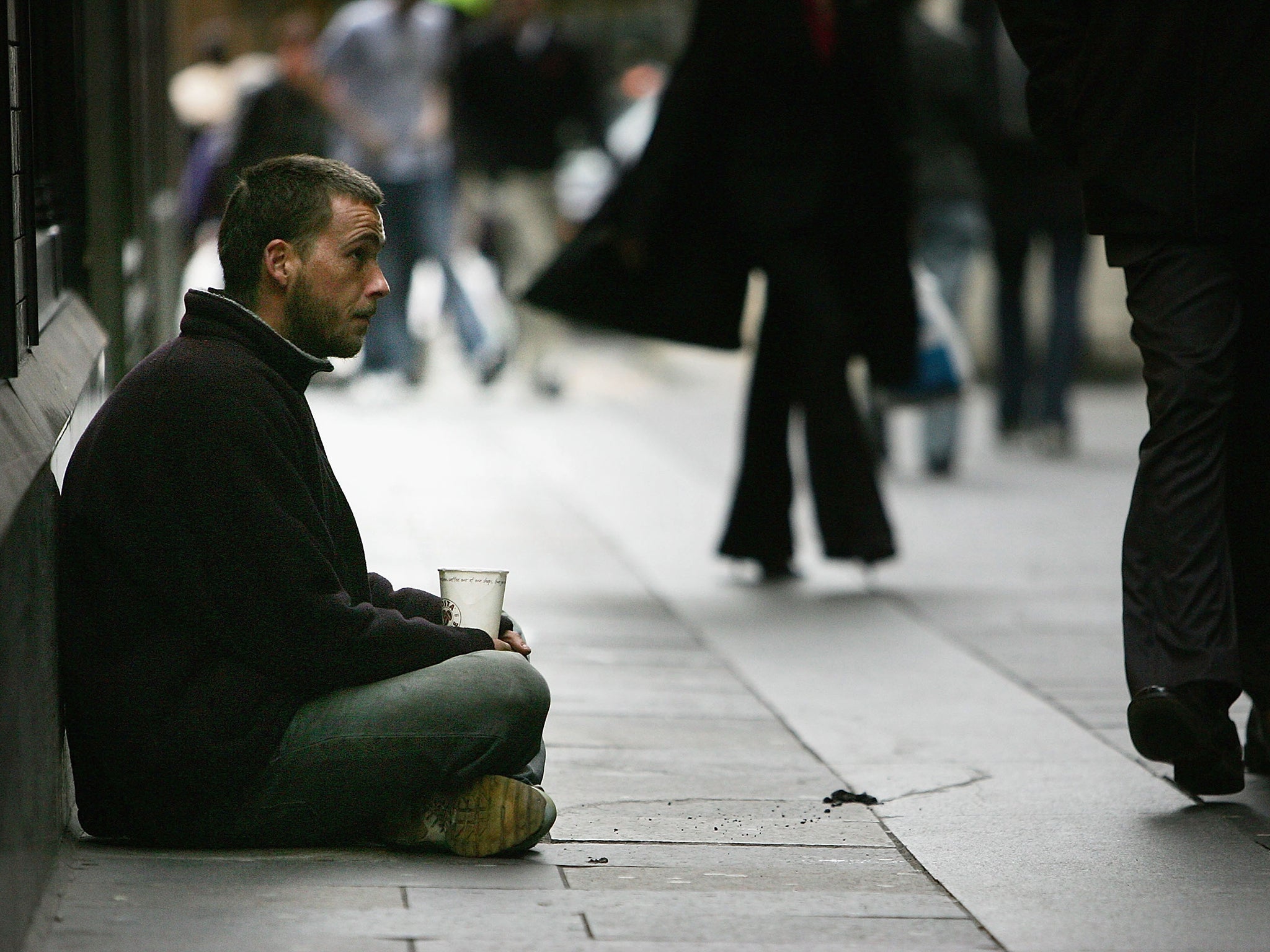More and more people are being left homeless by Britain's insecure private rented housing sector, new official figures show.
Nearly a third of all people made homeless in England now lose their homes because of a landlord ending a tenancy agreement, according to the latest figures from the communities department.
The growing problem is driving an overall increase in homelessness, with figures up by five per cent in the second quarter of 2015, according to the same set of figures.
Private tenants in Britain have fewer rights in law compared to those in other European countries, with no real security of tenure, short tenancy agreements, and no right to stable rents.
Landlords are allowed to eject tenants from their home at the end of a tenancy for whatever reason they choose – or none at all.
The figure is three times as many as when David Cameron came to power. 30 per cent of people are now made homeless because of a tenancy ending, up from 11 per cent in 2009-10.
But despite the problems with the sector government policy is driving more and more people towards private renting, with ministers having pledged a “bigger” sector.
Jon Sparkes, chief executive of the homelessness charity Crisis said the figures showed the private rented housing market was not fit for purpose.
“Nearly a third of these people became homeless following the ending of a private tenancy. This is totally unacceptable and reflects the desperate state of our private rented sector,” he said.
“We cannot ignore the reality behind these numbers. Thousands of people across the country are struggling to keep a roof over their heads in a housing market that is no longer fit for purpose, while cuts to housing benefit and homelessness services have left the safety net in tatters.”
He called for the Government to give tenants more rights, stronger state housing assistance, and to build more affordable homes.
The Chartered Institute of Housing said the Government’s changes to social security were exacerbating the problem by making landlords more reluctant to take in people reliant on benefits. It recommended the Government set up a fund to help tenants living in the private sector.
Despite growing numbers of people being forced into the private rented sector, a survey of private tenants conducted by the housing charity Shelter earlier this year found that most tenants are not there because they want to be.
The study found that 74 per cent were living in houses owned by landlords because they couldn’t get access to social housing or couldn’t afford to buy a home of their own. Only 14 per cent preferred renting.
13,850 households were accepted as homeless between 1 April and 30 June 2015. Worryingly, there was also a sharp 23 per cent rise in families trapped in bed and breakfast accommodation during the same period.
During the general election campaign earlier this year David Cameron claimed rough sleeping was down, despite departmental figures showing it increasing.
“We've got to help people who are sleeping rough, and their numbers are down under this government, we've been getting them into shelters,” he said.
But rough sleeping had actually increased by 55 per cent between 2010 and 2014.
A spokesperson for the Department for Communities and Local Government said: “Statutory homelessness acceptances are now less than half the 2003-04 peak.
“We have made over £1bn available since 2010, to prevent and tackle homelessness and support vulnerable households. Our investment has help prevent almost a million households from becoming homeless”.

Join our commenting forum
Join thought-provoking conversations, follow other Independent readers and see their replies
Comments